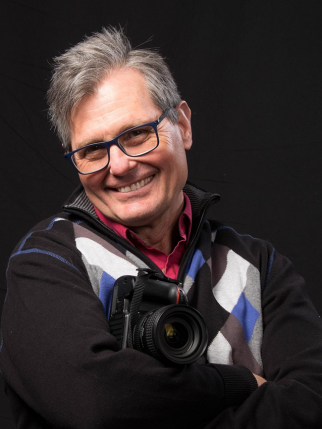
Michael Swan, The Catholic Register
Michael is Associate Editor of The Catholic Register.
He is an award-winning writer and photographer and holds a Master of Arts degree from New York University.
Follow him on Twitter @MmmSwan, or click here to email him.
Ukrainians ‘are living the Resurrection’
The bodies in the street, the abandoned tanks, the blackened and collapsed buildings, the bewildered and exhausted survivors who speak and weep before television cameras do not merely tell us the news. This Holy Week the bulletins from Ukraine are teaching us about God.
Still a way to go for Indigenous liturgy
More than 70 aboriginal languages are spoken in Canada, according to the 2016 census. But you can’t fully celebrate the Eucharist in any of them. Anointing the sick, baptisms, funerals, weddings and other important sacramental markers of Catholic life are also delivered on Indigenous land in English or French.
Apology begins path to reconciliation
Never was a single sentence more longed for. In 40 years since survivors began to speak out, 16 years since the Indian Residential School Settlement Agreement and seven years since the Truth and Reconciliation Commission of Canada delivered its final report, nations and peoples have waited for a Pope to speak.
Pope Francis apologizes for Church role in residential schools, plans for visit to Canada
The words I’m sorry from the Pope were more than what either Canadian bishops or Indigenous delegations expected from this week-long encounter with Pope Francis.
Indigenous demand Pope Francis revoke Doctrine of Discovery
First Nations delegates who met with Pope Francis today are still awaiting word on whether the Pope will renounce the Doctrine of Discovery.
Indigenous bring synodality to Rome
Metis elder and educator Gary Gagnon knows that what’s going on in Rome this week is not some esoteric side issue for the Catholic Church. It’s at the heart of the most important issue in the Church under Pope Francis.
As members of all three Indigenous delegations in Rome to meet with Pope Francis toured the Anima Mundi collection at the Vatican Museums, there were mixed feelings. Some were in awe, while some wanted to know how these examples of Indigenous culture ended up half a world away from where they were made.
Indigenous delegation makes headlines worldwide
The unprecedented meetings this week between Pope Francis and three Canadian delegations of Indigenous people in Rome are big news. Thirteen camera crews and dozens of journalists — Italian, American, British and Canadian — greeted Metis National Council president Cassidy Caron after the MNC delegation of nine came out to St. Peter’s Square after their hour-long encounter with the bishop of Rome.
After being greeted individually at the door of the papal library by Pope Francis, Inuit delegates proceeded to light the qulliq they had brought with them — a soapstone lantern that burns blubber, and a symbol of warmth and life in Inuit culture.
'Today is the beginning of something'
Hard truths and deep prayer marked the Metis delegation’s hour with Pope Francis, said bishops who were in the room when nine Metis elders and residential school survivors spoke with the Pope.

